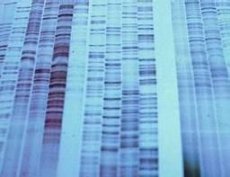New publications
Scientists have decoded the genome of a Dutch woman who lived to be 115 years old
Last reviewed: 30.06.2025

All iLive content is medically reviewed or fact checked to ensure as much factual accuracy as possible.
We have strict sourcing guidelines and only link to reputable media sites, academic research institutions and, whenever possible, medically peer reviewed studies. Note that the numbers in parentheses ([1], [2], etc.) are clickable links to these studies.
If you feel that any of our content is inaccurate, out-of-date, or otherwise questionable, please select it and press Ctrl + Enter.

Researchers at the Free University of Amsterdam (VU Amsterdam) have decoded the genome of a Dutch woman who lived to be 115 without any signs of senile dementia. The woman, who died several years ago, bequeathed her body to science.
Scientists hope that decoding the centenarian's genome will help identify the genetic mechanisms that protected her from diseases associated with old age.
A preliminary report on the results of the full genome sequencing of the Dutch woman was presented at the annual conference of the American Society of Human Genetics in Montreal, Canada. The authors of the work say that they have already identified a number of mutations in the woman associated with a reduced risk of Alzheimer's disease, Parkinson's disease, and atherosclerosis. A full interpretation of the data obtained will be published later.
The report does not provide the name of the woman whose genome was the subject of the Dutch scientists' study. In the report presented in Montreal, she is mentioned under the code name W115. However, in previous publications dedicated to the long-liver, her name was not hidden. Then it was reported that she was Henrikje van Andel-Schipper, born in 1890 and died in 2005. At the time of her death, the Dutchwoman was recognized as the oldest person on Earth.
Andel-Schipper bequeathed her body to the University of Groningen at the age of 82, 29 years later, at the age of 111, the woman called the university back and reminded them of her will. At the age of 100, Andel-Schipper underwent surgery for breast cancer, and the cause of her death at the age of 115 was determined to be stomach cancer.
The interest of geneticists and gerontologists in Andel-Schipper is explained by the amazing degree of preservation of the long-lived woman's mental abilities. The results of tests of mental functions, which the woman passed at the age of 113, exceeded the average indicators of 60-75-year-old patients. During the post-mortem autopsy of Andel-Schipper's body, employees of the University of Groningen did not find any signs of Alzheimer's disease or other neurodegenerative diseases in the woman. Signs of atherosclerotic damage to the woman's brain vessels were also minimal.

 [
[